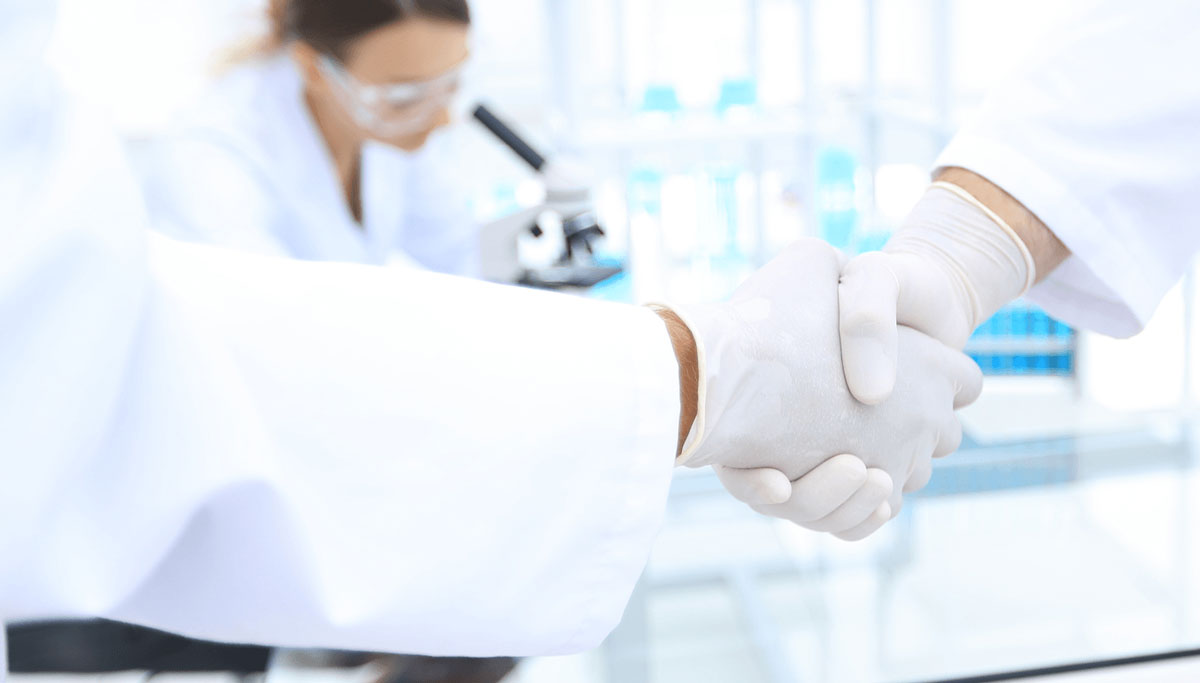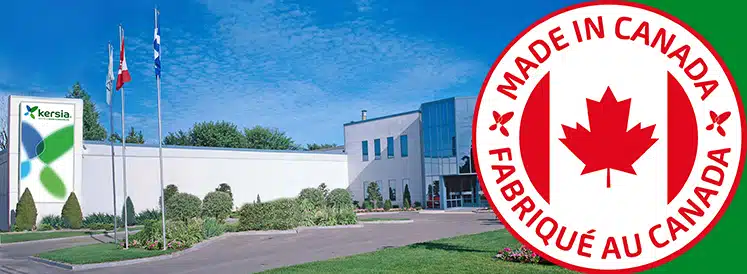Interview with Sébastien Bossard | CEO of Kersia

Food safety specialist Kersia has been making one acquisition after another since its first LBO in 2016, with Ardian, which has since then stepped aside for IK Investment Partners. Sébastien Bossard, its CEO, looks back on that transaction and the group’s external growth policy.
After Holchem in May, you announced the acquisition of Sopura in November, the seventh since 2016. Why is your external growth policy so active?
Sébastien Bossard. Well before Ardian entered the picture, we were interested in external growth. Hypred was still a subsidiary of the Roullier group, and we were unable to buy companies. The first LBO, which required a carve-out at the end of 2016, had two objectives: organic growth and external growth. Acquisitions got off the mark fast with Anti-Germ, which has operations in Europe and China. That same year, we doubled in size, acquiring LCB Food Safety, in the dry disinfection sector, and G3 in Brazil. In 2018, the newly constituted group got a brand new shared identity, Kersia, and, with Brexit in mind, we expanded our presence across the Channel by absorbing Kilco. The next year, with the acquisition of the Choisy laboratories, based in Canada, we reinforced our presence in North America and took advantage of new technologies.
With acquisitions, we go after what we don’t have or what we want to speed up, whether it’s technologies, an application segment or a geographic zone. So taking on Holchem in May brought us the food and beverage piece in the United Kingdom. That opportunity put Kersia at the head of the pack of the hygiene sector in the UK and in second place in Europe.
What drives you to maintain this sustained pace?
In our trade, regulation is constantly increasing and becoming standardized around the planet. The investment required to sell our solutions at the global level is so large that critical mass is indispensable. Achieving sales of 300 million euros was one of the goals of the LBO with Ardian. We exceeded that in 2020. Today, regulation is as much to do with the final product in terms of labelling and packaging as with industrial production tools. The trade is extremely demanding in terms of investment from a global perspective, unlike other trades that are more so on the industrial front.
And in agrifood, our clients have grown as well. That consolidation pushes us to cover many territories. On the global scale of food safety, Kersia is a mid-sized company. The second LBO will allow us to pursue this two-prong growth strategy – organic and external – with the goal of achieving sales of 600 to 700 million euros in four years. Before the LBO, Hypred was growing at 5% to 6% a year on its own. In these last four years, we managed to maintain our organic growth despite the sustained pace of acquisitions. Thanks to a structured post-merger integration process, we avoided having the acquisition disrupt the sales dynamic.
“The second LBO will allow us to pursue this two-pronged growth strategy – organic and external.”
How are the acquired companies integrated?
We developed the PMI process ourselves when we bought Anti-Germ. It was a high-risk transaction because it merged two companies that had been competitors for 25 years and were culturally different. In the very necessary change management program, we relied on two firms to assess the business culture of the target but also of Hypred, just before the closing, in order to assess the risks. We developed a training and support structure that was crucial for explaining how to manage the change, but we kept business front and centre. So when indicators showed that activity was suffering because of a decision, we reviewed it before starting again. That led to the qualitative integration of the teams while still paying close attention to our clients and our business. The strategy paid off, because the client turnover rate is extremely low, under 4%.
How do you keep business as such a high priority across the entire group?
Our success is thanks to corporate social responsibility. At the time of the first LBO, we decided to offer access to the group’s capital on a broad scale, beyond the management circle. Today, 10% of the employees are shareholders and our goal is to expand that even further. This threshold provides leverage and it makes the teams accountable, more client-oriented in their decisions. The average employee seniority is nine years. Family businesses that are acquired appreciate Kersia’s entrepreneurial DNA, which offers managers the chance to invest and participate in the creation of value. It’s the group’s hallmark.
“We managed to maintain our organic growth despite the sustained pace of acquisitions.”
Is consolidation in the industry at the same stage everywhere? Who are your competitors?
Europe and North America are the most consolidated areas, but there are still countries with lots of family businesses. What we have done in these last four years has contributed to consolidation in Europe. Farther away, the South American and Asian markets are still very fragmented, unlike Oceania. In that environment, Kersia is a global concern, with a 5% market share. Our main competitors are the American firms Ecolab and Diversey. They’re generalists in industrial and professional hygiene, but Kersia has chosen to focus on expertise in the food safety sector, which represents 95% of our sales, rather than diversify. Our other competitors are continental but having trouble expanding beyond their geographic zones or else they’re small local businesses.
How much has the pandemic affected your operations?
In the first wave last spring, demand exploded, to the point of a 75% increase in some countries. The supply chain was under pressure, and M&A was not a priority. The shareholder change process, which extended from six months to twelve, encouraged us to do more in-depth analyses. In the case of Holchem, the process began at the end of 2019. A presentation to management in England took place just before the first lockdown, and then the whole process continued digitally, including the closing. The post-acquisition integration process, which we always do internally, had to be adapted, because we could not go to Holchem. For that, we got help from an international firm with operations in the UK. For Sopura, we will probably repeat that process.
“With Sopura, the ‘beverage’ share of sales will jump from 3% to nearly 20%.”
What are the underlying factors in the acquisition of Sopura?
With Sopura, we are getting one of the global top three in the brewing industry. The “beverage” share of Kersia’s sales will jump from 3% to nearly 20%. But the connection will primarily give the group technologies related to brewing and soft drinks. In addition to these sectoral and technological elements, the geographic angle interests us. Sopura has plants in Australia, Vietnam and South Africa, where demand is rising, as was the case in Canada back in the day, but with no local production capacity. We will be able to look at opportunities in regions like Southeast Asia, to complement China, where we already have a presence, Oceania and Africa. After the transaction, the group will have sales of 375 million euros and 1,800 contributors in about 120 countries.
What are your ambitions for 2021?
This year will be dedicated to strengthening the food safety segment. We’re looking for businesses with activities in the food chain, be it agriculture, agrifood, restaurants or water treatment. Several targets are already on the table, still with the same strategy, which is geographic reinforcement, the acquisition of segments and disruptive technologies, either biotechnological or digital. In May, we acquired a bigger interest in a Dutch start-up called Connecterra, which is a world leader in dairy farming AI.
Original interview is from www.magazine-decideurs.com, by Anne-Gabrielle MANGERET


